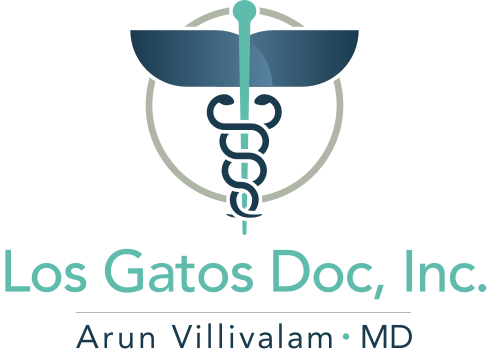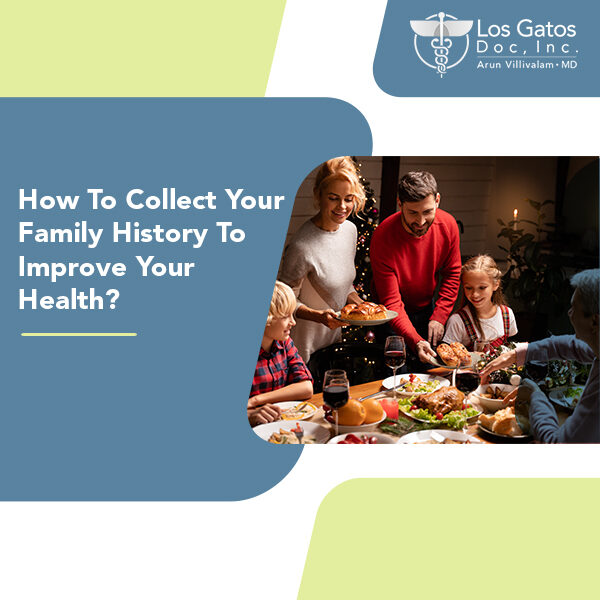This holiday season, learning about your family’s medical history could save your life. During this season of giving, we hope you will consider your own and your family’s health and learn about hereditary diseases. Talk to your loved ones about their health over the holidays. It could reduce mortality. As doctors, we often recommend diet and exercise changes to high-risk patients. You can learn the most about your family’s medical history from loved ones.
How To Find Your Family Health History?
You may know very little or a great deal about the medical history of your family.
Here’s what a survey conducted by the Center for Disease Control and Prevention (CDC) found out: 96% of Americans agree it is important to know one’s family history, yet only 33% have done so.
So, the question is how do you record your family health history? Here are our recommendations to help you get started on this daunting but worthwhile task.
- Prepare And Organize
Before starting a conversation, get organized and prepare. With a large family, there are more people to talk to and track.
First, list your blood relatives. Next, list your questions. This is helpful for getting the same information from all your relatives. Some questions can include:
- Do you have chronic conditions?
- Have you had cancer or a heart attack?
- When did symptoms begin?
- How medicated are you?
- Schedule Your Meetings
It’s best to schedule a mutually agreeable time to discuss health with another person. If you want them to be honest about their health, talk to them when they’re relaxed. Explain why you’re contacting them and how they’ll benefit from meeting.
Talking to family members about their health is the best way to learn about family medical history. Discuss your family’s health at gatherings or individually, whatever’s comfortable with all the parties involved.
Try to learn as much as possible about your deceased ancestors, especially about their terminal illnesses. Some discussions with your family can include:
- Heart disease, diabetes, hypertension, depression, anxiety, or cancer in the family (specify type of cancer)
- Hemophilia, cystic fibrosis, or sickle cell anemia in the family
- Deaths (and ages)
- Infertility
- Some diseases, like diabetes, run in families.
Asking loved ones about their health can be awkward at first. You wouldn’t tell your father, “Pass the potatoes and tell me about your prostate.” With the right tone and focus, this can be a touching discussion that eloquently displays your caring concern for your loved ones and the strong family bonds.
Creating a relaxing environment helps. Health is taboo for casual conversation, as mentioned. Respect your loved ones’ feelings by passing along helpful information.
- Make A Record
When did their health problems start? These are family-friendly topics. Learn about your parents, siblings, half-siblings, half-brothers, children, grandparents, aunts, uncles, nieces, and nephews.
Record major medical conditions, death causes, age at diagnosis, age at death, and ethnicity. This could be key. Record everything you can. Something unimportant now may be crucial later. Ask follow-up questions about the relative’s disease, treatment options, and recovery timeline.
Include the following in your family health history:
- Three generations of ancestors’ details.
- Diagnosis age.
- Age at death and disease
When researching your family’s medical history, look for:
- An unexpectedly young family member was diagnosed with a fatal illness.
- Multiple family members have the same illness.
- Hereditary disease clusters include breast and ovarian cancer, diabetes, and heart disease.
The CDC and NIH’s National Human Genome Research Institute have printable and online tools to help with recording your family history. For example, the CDC’s “My Family Health Portrait” online tool helps you compile a family medical history to share with your family and doctors. Using this online tool doesn’t send or store private information to the CDC.
Whether you keep your family history records electronically or on paper, keep them in a safe place where you can easily access them.
- Track Your Family History
Creating family medical histories isn’t enough. It’s smart to track them. Family medical history can help doctors determine disease risk. Diabetes, heart disease, high blood pressure, cancer, and other conditions can be diagnosed and treated earlier with a family history. This improves your chances of getting treatment before it’s too late.
Keep your doctor updated on this information. Doctors need your complete medical history. Family history can help your doctor identify potential health issues.
Compile your family’s medical history before a doctor’s appointment. It’s important to share what you know about your family’s medical history. Incomplete family medical history can still help your doctor determine which preventative screenings you need and when.
- Share With Your Family
A complete family medical history is beneficial. You can share this information with loved ones, like children, to help them prepare for their future health and its improvement. It’s also important to tell loved ones about your health issues so they can help.
Your Health Depends On Knowing Your Family’s Medical History
Knowing your family’s medical history can improve health decisions. Together with your doctor, you can prevent or treat harmful family health trends. Your family doctor in Campbell can give you better health advice based on your family’s medical history. This may include screening tests or lifestyle changes to reduce disease risk.
Should you be tested for a family disease or disorder? We’ll help you. Please contact us at Los Gatos Doc if you have medical questions or want an appointment.
(Disclaimer: We routinely draw upon public health resources to inform our write-ups. Information in this article may be drawn up from multiple public health sources, including:
- Centers for Disease Control & Prevention
- Medline Plus
- National Institutes of Health
- American Medical Association
- American Association of Family Physicians
- Mayo Clinic
- Family Doctor






